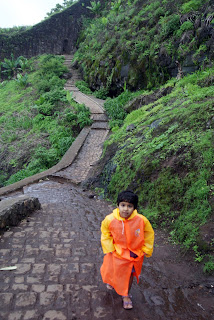Child in
Wildness: The Importance of Nature in Childhood Development
Today, I came
across a thought-provoking article on autism in children, highlighting its
connection to modern lifestyles. The piece served as an eye-opener,
particularly for new parents navigating early parenthood in urban environments.
A concerning trend among young couples is the overuse of mobile phones as a
pacifier for toddlers, inadvertently leading to addiction and developmental
challenges. This dependency can sometimes contribute to autism, a condition
that hinders cognitive and emotional growth in children.
Children
between the ages of two and four are particularly vulnerable. Autism can impair
their ability to recognize and respond to their surroundings, slowing or even
halting critical developmental milestones. Parents are urged to prioritize
meaningful interactions with their children. Activities like playing together
and exploring natural spaces can profoundly impact a child’s development.
This reminds me
of a memorable interaction with a child at Sinhagad Fort near Pune. The serene
and picturesque landscape served as the perfect backdrop for photography.
Amongst the greenery, a young boy, dressed in vibrant colors, stood out,
enjoying the beauty of nature. His curiosity and engagement with the
environment were a testament to the transformative power of connecting with the
natural world.
The Significance of Nature for Children
In an
increasingly urbanized and technology-driven era, a child’s bond with the
natural world is both profound and essential. Nature provides children with
opportunities to grow holistically, fostering creativity, resilience, and
emotional well-being.
Key Benefits of
Nature for Children
- Cognitive Development: Exploring nature sparks
curiosity and problem-solving skills. Activities like observing wildlife,
building sandcastles, or identifying plants nurture critical thinking and
environmental awareness. - Physical Health: Outdoor play promotes physical
fitness, enhancing motor skills while reducing the risk of childhood
obesity. - Emotional Resilience: Nature offers a calming
environment, reducing stress and anxiety while boosting confidence and
independence. - Social Skills: Group activities in nature, like
hikes or team explorations, help children develop communication, empathy,
and teamwork.
Wildness in Education
Incorporating
nature into education can transform learning experiences. Outdoor classrooms,
forest schools, and environmental education programs provide children with
hands-on lessons about ecosystems, conservation, and sustainability, fostering
a lifelong sense of environmental stewardship.
Overcoming Barriers to Nature
Urban
lifestyles often limit access to natural spaces due to busy schedules, safety
concerns, and shrinking green areas. However, small steps can bridge this gap:
- Creating Green Spaces: Communities can prioritize
parks, community gardens, and green corridors. - Parental Involvement: Weekend hikes, picnics, and
visits to zoos or wildlife reserves can introduce children to the wonders
of nature. - Technology as a Bridge: Apps that guide plant
identification or nature trails can complement outdoor activities, making
nature exploration engaging.
Lifelong Impact
A connection to
nature in childhood fosters creativity, environmental consciousness, and emotional
well-being that lasts a lifetime. Lessons learned in nature—adaptability,
respect for life, and simplicity—shape compassionate and mindful individuals.
Conclusion
The “child
in wildness” is not just an idyllic vision but a vital component of holistic
development. By prioritizing this connection, parents, educators, and
communities can empower children to grow into resilient, environmentally
conscious individuals. Let’s nurture the irreplaceable bond between children
and the natural world for a brighter, healthier future.
In picture a child in Wildness of Sinhaghad, Pune
Text and Photo by Ashok Karan,
Ashokkaran.blogspot.com,
Please like, share and subscribe.
Thanks
#ChildInNature
#WildnessForChildren #AutismAwareness #NatureForKids #HolisticDevelopment
#ParentingTips #ChildhoodMatters



Leave a Reply